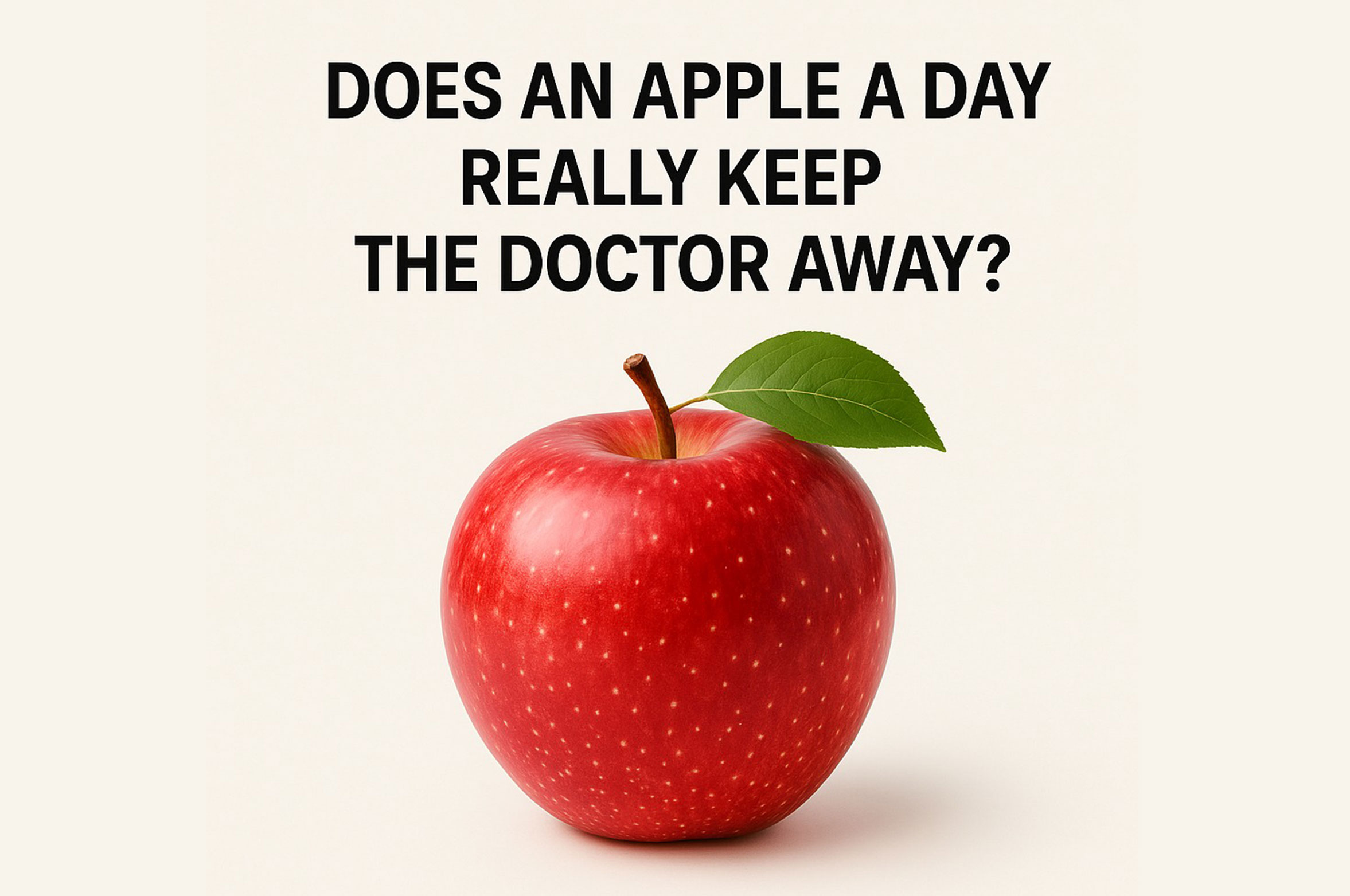Does an Apple a Day Really Keep the Doctor Away?
The Origin Story: A Glimpse into Medical Folklore
The phrase "An apple a day keeps the doctor away" isn't merely a catchy rhyme; it's a testament to historical perceptions of health and wellness. Its earliest known iteration appeared in a Welsh proverb in 1866: "Eat an apple on going to bed, and you’ll make the doctor beg his bread."
The Apple: More Than Just a Fruit
The apple isn't magic in itself — it’s symbolic. It represents fruit consumption in general, a gentle reminder to include nature’s gifts in our daily diet. The apple was likely chosen for its global availability, affordability, and familiarity. Whether in a wealthy metropolis or a modest village, apples are a universal staple, making the proverb easy to adopt worldwide.
Fruit: A Daily Necessity, Not a Luxury
Apples are packed with dietary fiber, essential vitamins (notably Vitamin C), and a wealth of antioxidants, including polyphenols, quercetin, and flavonoids. These bioactive compounds are the true heroes behind the fruit's extensive health advantages. A medium-sized apple typically provides around 4-5 grams of fiber and a significant portion of the daily recommended Vitamin C intake, along with minerals like potassium and copper.
These nutrients support countless physiological functions, from immunity and detoxification to cardiovascular regulation and cellular repair.
Apples in a Holistic Lifestyle
While the apple's benefits are clear, it's essential to view its role within the context of a holistic approach to health. An apple is a valuable "brick in the wall" of a balanced, plant-forward diet, but it is not the entire wall. True preventive health relies on a combination of factors:
- Balanced Nutrition: A diverse diet rich in various fruits, vegetables, whole grains, and lean proteins is paramount. Relying solely on apples, or any single food, for all health benefits is insufficient.
- Active Lifestyle: Regular physical activity is crucial for maintaining a healthy weight, improving cardiovascular health, and boosting mood.
- Other Healthy Habits: Adequate sleep, stress management, avoiding smoking, and limiting alcohol consumption all play significant roles in disease prevention and overall well-being.
- Professional Medical Care: Vaccinations, regular health screenings, and prompt attention to acute medical problems are irreplaceable. Apples do not negate the need for professional medical advice or interventions.
Fiber: Food for the Second Brain
Fiber isn’t just for digestion. It’s a primary food source for the gut microbiome, the collection of good bacteria living in our intestines. These microbes don’t just process waste they produce neurotransmitters, regulate inflammation, and shape immunity. This is why many now call the gut our “second brain.”
Fruits, especially seasonal ones, contain soluble and insoluble fibers that nourish gut bacteria, promote colon health, and reduce the risk of chronic inflammation and disease.
Eat with the Seasons
Nature designed fruits to grow in alignment with seasonal needs. Water-rich fruits in summer cool and hydrate. Antioxidant-rich berries in spring prepare the body for regeneration. Dense fruits in autumn offer energy for colder months.
So, a key takeaway: Eat the fruit that the season offers. It’s the best way to stay in rhythm with nature, and to prevent the seasonal illnesses that come with changing weather.
What About Fructose?
Some fear fruit because of fructose, the natural sugar found in it. But fructose in fruit is not the enemy especially when paired with fiber, water, and nutrients. The fiber slows sugar absorption, preventing blood sugar spikes.
To stay safe and healthy:
- Diabetics should aim for ~150g of fruit per day
- Others can go up to ~250g
- Eat in moderation, and whole, not juiced.
Fruits and Chronic Conditions
For individuals with heart disease, hypertension, and vascular problems, fruit isn’t optional — it’s essential.
The potassium, polyphenols, and antioxidants in fruits help:
- Reduce blood pressure
- Lower oxidative stress
- Improve endothelial function
- Support heart rhythm
Fruits should be part of the daily nutritional strategy for cardiovascular support.
The Myth of Fruit as a Dinner Replacement
One common mistake is using fruit as a dinner replacement. While it may sound healthy, it can disrupt digestion and sleep due to:
- High sugar content at night
- Lack of protein and healthy fats
- Increased fermentation in the gut
Best practice? Have fruit before meals, not after — especially lunch — to aid digestion and boost enzyme activity.
Final Thought: Fruit as a Seasonal Shield
When we consume the right fruits at the right time, we’re not just feeding ourselves — we’re protecting ourselves. Seasonal fruits are nature’s preventive medicine, rich in compounds tailored for the climate, daylight, and energy demands of that time of year.
So maybe the proverb should say:
“A seasonal fruit a day keeps the seasonal illness away.”
If you found this helpful, give it a clap, share it with someone who still skips their fruit, and maybe — go grab an apple.🍏









